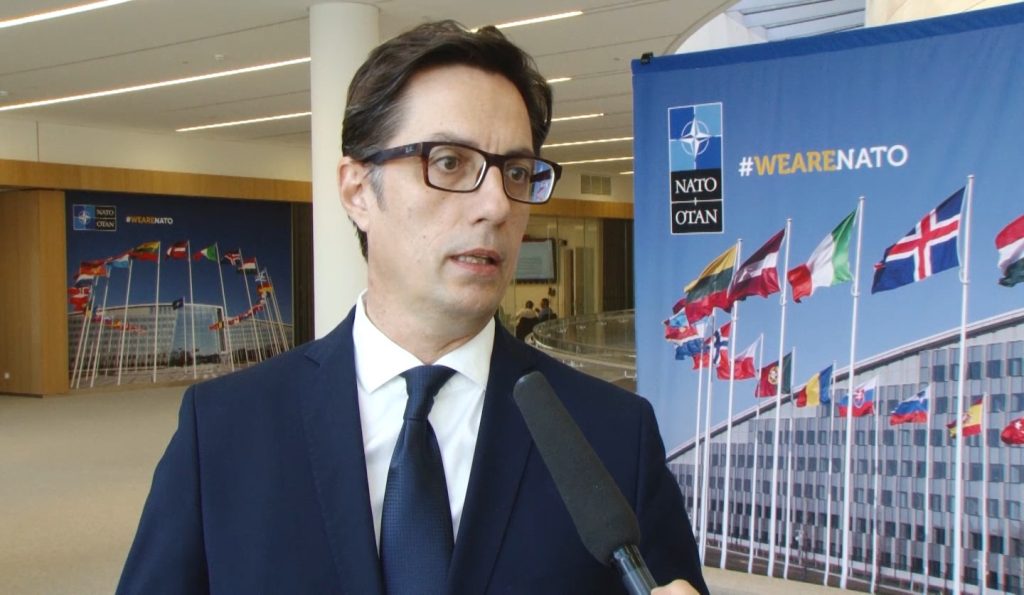
Please follow us on Gab, Minds, Telegram, Rumble, GabTV, Truth Social, Gettr, Twitter
The January 19th attack on the secretary of the King Boris III Bulgarian Cultural Club in Ohrid has flared tensions between Bulgaria and North Macedonia. Bulgarian President Rumen Radev told reporters on Friday, “The case of Hristian Pendikov is the result of a decades-long policy of instilling hatred towards Bulgarian in the Republic of North Macedonia and everything that is Bulgarian. This is why it is important for authorities in North Macedonia to state clearly that this is a hate crime and not a conventional crime.”
Bulgaria is threatening to use its veto to block North Macedonia’s accession to EU institutions unless serious reforms are made. Radev said that Bulgarian authorities “will request of the Macedonian authorities to state clearly what measures they will take so that Macedonian Bulgarians feel protected and free as it should be in a European state. This will be the criteria that North Macedonia will be judged by. But to get there, the government and the institutions of North Macedonia have a lot of work to do, starting with the replacement of school books, the media, and the overall attitude of the institutions toward the Macedonian Bulgarians and their recognition in the country’s Constitution.”
North Macedonia’s refusal to recognize Macedonian Bulgarians as a distinct ethnic group has been an ongoing source of tension between the two countries.“We expect that Macedonian Bulgarians be recognized in the Constitution of North Macedonia as soon as possible,” the Bulgarian President added.
In turn, the President of the Republic of North Macedonia Stevo Pendarovski condemned the violence, but accused Bulgarian authorities of politicizing the issue. He said certain Bulgarian politicians may “score some political points here and there because elections are coming, but in the long term they will get nothing.”
Pendarovski added, “First, it is a historical narrative, or understanding of the relations between North Macedonia and Bulgaria, which dates back to the 1960s. It has entered the minds of many generations of Bulgarian politicians. I am not saying that there are not people here who see Macedonian-Bulgarian relations in this way. I am not saying this because the white spots or grey areas in both historiographies from the time of so-called socialism are still present.”
Pendarovski had asked his government to ban the entry of certain Bulgarian politicians from entering his country for the upcoming 151st birth anniversary of revolutionary Georgi Nikolov Delchev on February 4. Delchev (1872-1903) was a Bulgarian-Macedonian revolutionary who fought to free his people from Ottoman domination, and he is widely recognized as a national hero in both countries. The Macedonian President clarified that he did not intend for the measure to be applied to those who claim people living in North Macedonia are Bulgarians. “Nowhere in the world is the persona non grata measure taken because of a political statement,” Pendarovski added, “at least not in democratic countries, and we claim to be a true European democracy.”
The Macedonian government, however, declined to act of Pendarovski’s proposal. The Prime Minister of North Macedonia, Dimitar Kovacevski, speaking before Parliament, said “There is no anti-Bulgarian campaign in North Macedonia. There are persons who are responsible for the latest incidents, but these are individual actions for which you cannot blame the entire state. We are taking all measures in view of the Constitution, and we continue to be a constructive partner both in the region and the EU.”
The Bulgarian Ambassador to the Republic of North Macedonia, Angel Angelov, said on Bulgarian National Television that “the two countries seem to be speaking in different languages. I think some de-escalation has to be achieved, and it has to be in the direction of addressing the fears and problems of Bulgarians living in North Macedonia.”